Many questions have been raised since Türkiye expressed its intention to join BRICS, especially regarding the “East-West choice” of this strategically important country. However, it is clear that Ankara has been and is still seeking a balance in its policy, for the benefit of the country and its people.
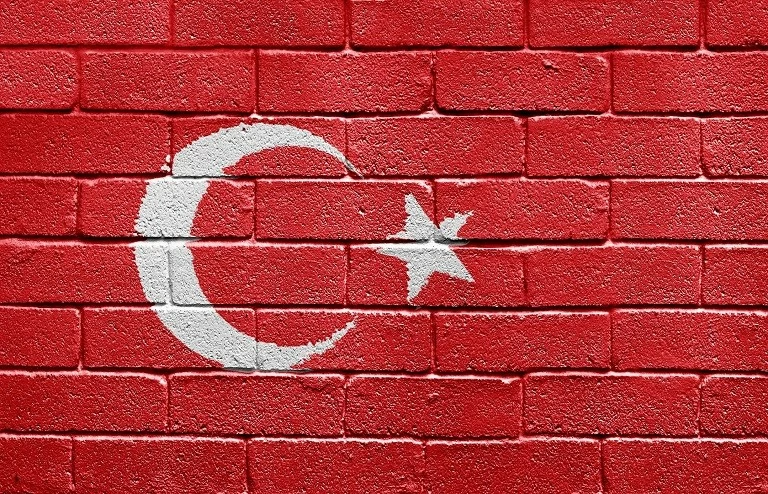 |
| Türkiye officially applied to join BRICS on September 3. (Source: Getty Image) |
Disappointment piled up
The Strategist (Australia) on September 23 published an article by author William Gourlay, a lecturer in Middle East politics at Monash University (Australia), analyzing moves showing that Turkey is positioning itself to join the BRICS group of leading emerging economies in the world, including Brazil, Russia, India, China and South Africa.
Earlier this month (September 3), Ankara officially applied to join BRICS, a few months after Turkish Foreign Minister Hakan Fidan attended the BRICS Foreign Ministers' Meeting in Russia (June).
At a meeting with Foreign Minister Fidan, Russian President Vladamir Putin welcomed Türkiye's growing participation in the BRICS group.
In a speech at the Turkish Center for Strategic Studies (SETA) on September 20, Turkish Foreign Minister Hakan Fidan emphasized: "If you join a new association, you will leave another association. These are concepts that were formed historically from the Cold War. In fact, Türkiye’s desire to join BRICS is in the interests of the country and its people. We have been cooperating and holding high-level discussions with various organizations and associations, such as BRICS, ASEAN…”. Türkiye's foreign minister said that Ankara's intention to join BRICS should not be imposed on a pro-Western or pro-Eastern perspective. |
Expert William Gourlay said that accepting Türkiye - a country of 85 million people and the world's 19th largest economy - would add geopolitical weight to BRICS, a bloc considered a counterweight to the G7.
According to Mr. William Gourlay, the above moves come at a time when Türkiye's strategic confidence seems to be wavering.
US-Türkiye relations have recently hit a low.
Last year, Turkish President Recep Tayyip Erdogan threatened to “break up” with the EU (although he has not yet set foot in the union) and expressed his desire to become a permanent member of the Shanghai Cooperation Organization (SCO).
According to expert William Gourlay, Ankara's recent overtures to BRICS show pragmatism. As the Turkish economy grew in the first two decades of the 21st century, Türkiye became increasingly confident on the international stage.
Now it has less to worry about pursuing a foreign policy that does not follow the lead of its Western partners. Meanwhile, Ankara has become increasingly frustrated with the lack of progress on joining the EU. Accession talks began in 2005 but have been stalled for some time.
Losing strategic leverage?
Expert William Gourlay said that European concerns about Türkiye joining the EU are not unfounded.
A European Parliament report on Türkiye published in 2023 outlined a long list of concerns, including restrictions on the media, the opposition and the Kurds; declining women's rights; a lack of judicial independence and Ankara's refusal to comply with rulings by the European Court of Human Rights.
Meanwhile, BRICS offers Türkiye a political-economic alternative to the EU.
Expert William Gourlay commented that Türkiye's accession to BRICS would face less stringent conditions.
Furthermore, Türkiye has warm relations with China. The Turkish Foreign Ministry has noted that trade with China has grown rapidly, to the point that the superpower is now Turkey's second-largest trading partner.
Ankara hopes to expand its agricultural exports to Beijing. Türkiye is also part of China’s Belt and Road Initiative, which connects it to several Central Asian countries. So it makes sense that Türkiye would seek BRICS membership and that Ankara’s planners would value BRICS, according to William Gourlay, an expert.
As the global geopolitical center of gravity shifts from the Western Hemisphere to the Indo-Pacific, could Türkiye lose its strategic leverage – its often-touted status as a bridge between East and West? Expert William Gourlay asserts that joining BRICS would benefit Turkey, placing it in an emerging bloc that encompasses regions and connects developing economies.
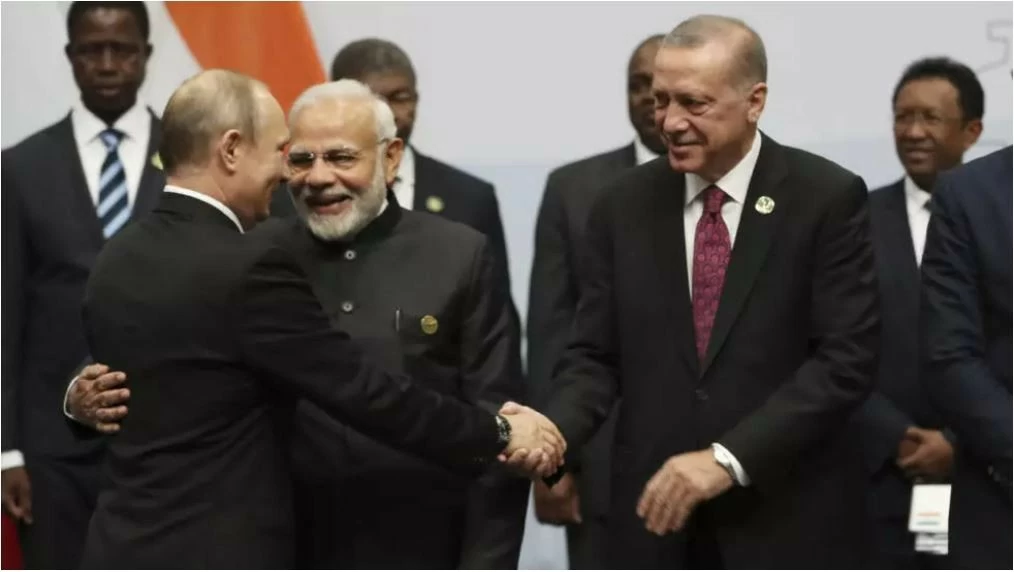 |
| Türkiye's membership in BRICS could provide an opportunity to reassert its role as a bridge. (Source: AP) |
Can be "balanced"
Of course, according to Australian experts, Türkiye's entry into BRICS is not a given because all current BRICS members will have to approve Ankara's application.
Even if Türkiye joins BRICS, this should not be seen as a rejection of the West, according to expert William Gourlay.
President Erdogan recently remarked that Türkiye will not be forced to choose between Europe or the Shanghai Cooperation Organization (SCO), but that it can maintain relations and cooperation with both.
Here, expert William Gourlay makes a comparison with India, a founding member of BRICS and a full member of the SCO, but also a member of the Quad group (including the US, Japan and Australia).
Western policymakers should not view Türkiye's geopolitical leanings as a "zero-sum game" (where one side gains, the other loses), concludes expert William Gourlay.
Türkiye's membership in BRICS could provide an opportunity to reaffirm Türkiye's role as a bridge, not only between continents but also between geopolitical blocs.
Türkiye's foreign policy is very autonomous and has a clear direction. In an interview with TG&VN , Vietnamese Ambassador to Turkey Do Son Hai once commented: Up to now, experts have assessed Turkey as a regional power first and foremost, and its ambitions are not only regional but also global. Although Turkey is a member of NATO, when the US and the West announced sanctions against Russia over the Crimea or Ukraine issues, Turkey protested against its own NATO ally. Many people think that Türkiye wants to get closer to Russia, but in fact, they support Ukraine from the perspective of protecting national sovereignty through actions such as providing partial military support, using the rights in the Bosporus Strait during the conflict to restrict Russian warships from passing through this strait. In other words, Türkiye is implementing a very autonomous policy and they have the basis and resources to maintain that. Turkey’s foreign policy is very autonomous and has a clear path to implement that policy. In fact, Turkey is under a lot of pressure from countries that do not want it to be autonomous. For countries that want to implement an autonomous policy, they must answer at least two questions. First , do they really want an autonomous policy? Second , if they are autonomous, where will the resources come from to be autonomous? And I am sure that Turkey has answered those two questions. When there is a disagreement with the EU countries, the Turkish President's administration announced that it is ready to expel 13 EU ambassadors from the country. That shows that they are very determined and to have that determination, they clearly need support, not from foreign countries but from the people in the country based on the resources they have. If there is tension with European countries, they accept the loss but that loss is acceptable. |
Source: https://baoquocte.vn/tho-nhi-ky-trong-su-chon-lua-dong-tay-long-tin-dao-dong-nhung-khong-choi-tro-co-tong-bang-0-muon-gia-nhap-brics-cung-vi-mot-le-287501.html


![[Photo] General Secretary To Lam concludes visit to Russia, departs for Belarus](https://vphoto.vietnam.vn/thumb/1200x675/vietnam/resource/IMAGE/2025/5/11/0acf1081a95e4b1d9886c67fdafd95ed)

![[Photo] General Secretary To Lam arrives in Minsk, begins state visit to Belarus](https://vphoto.vietnam.vn/thumb/1200x675/vietnam/resource/IMAGE/2025/5/11/76602f587468437f8b5b7104495f444d)



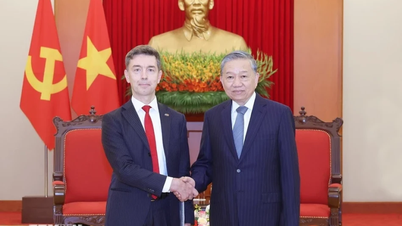



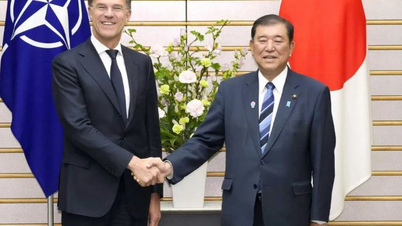








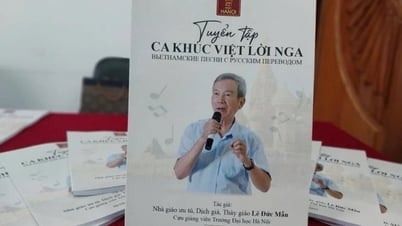
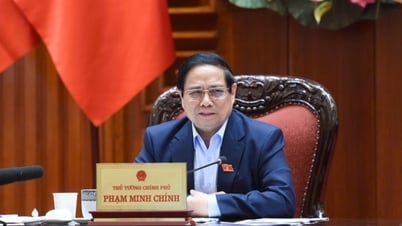

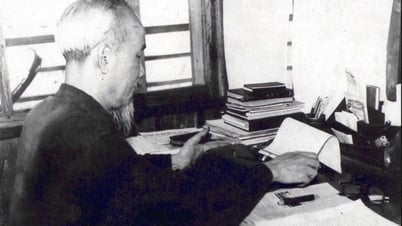











![[Photo] National Assembly Chairman Tran Thanh Man attends the Party Congress of the Committee for Culture and Social Affairs](https://vphoto.vietnam.vn/thumb/1200x675/vietnam/resource/IMAGE/2025/5/11/f5ed02beb9404bca998a08b34ef255a6)



















































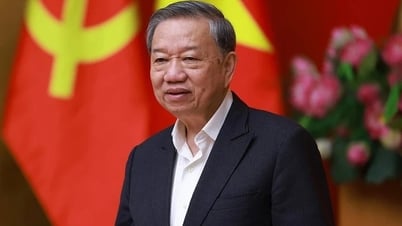









Comment (0)